Admissions/Recruitment 1. Designing Your Honors Pathway: Reimagining the First-Year Experience
Rae Mansfield, Ph.D., UMass Lowell Honors College
The First Year Seminar in Honors at UMass Lowell, lovingly referred to on campus as “FYSH,” is students’ introduction to interdisciplinary Honors research and education. Envisioned and designed to promote cohort formation and creativity, FYSH combines city as text, first year writing, breadth-of-knowledge arts and humanities, and co-curricular engagement. Our approach aligns with HERU's suggested topics of student engagement, mental health, well-being, and belonging, as it empowers students to take an active role in mapping their undergraduate pathway, promoting a sense of ownership, agency, and belonging within the Honors community. FYSH addresses advising and retention by fostering early faculty-student connections, high-impact practices related to research and internships by partnering with academic deans to engage first-year students in research experiences, and pedagogies by collaborating with the College Writing Program to teach interdisciplinary research methodologies to a diverse population of majors. We dramatically redesigned the course modality after lockdown to address mental health concerns and student engagement and creative a supportive Honors learning environment.
The course is run as two large-format (c. 650 student) online and in-person lectures paired with 19-student recitation sections. The goal is for students to complete the semester with a sense of how to take advantage of available curricular and co-curricular opportunities and an understanding of which of these opportunities may best connect with their interests and passions and enhance their academic pathway.
In addition to teaching fundamentals of academic writing in the disciplines, FYSH incorporates life design principles, leverages the surrounding community as city as text and a living laboratory through field experiences, interviews, and campus-community partnerships, implementing a student engagement app to promote and encourage students to take part in co-curricular and experiential learning opportunities, and employs techniques such as pair-shares, low-stakes presentations, self assessments, goal setting, and improv games.
Each week we invite guest speakers from across the campus and surrounding community to discuss reframing failure, overcoming overwhelm, perspectives on undergraduate experiences, the search for positive and constructive mentorship, and learning that it is okay to not have all the answers and not know the many courses life may take. Often guest speakers become a resource and connection for students seeking internships, lab work, and experiential learning opportunities.
Outside of the classroom, we partner with the Tsongas Industrial History Center and the Lowell National Historical Park on public history workshops and experiences and collaborate with the Arts & Business Council of Greater Boston and Mosaic Lowell (an arts, cultural, and creative economy organization) and visit local arts institutions and sustainability initiatives.
This multifaceted approach aims to empower students to actively design their academic pathway through the Honors program requirements, promoting a sense of agency and ownership over their education. By embracing these strategies, Honors colleges can create a transformative learning experience that not only enhances academic achievement but also cultivates a supportive and inclusive community, ultimately contributing to the holistic development and success of their students.
